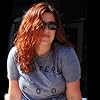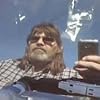SarahLeeNotCake
asked
G.S. Jennsen:
Did you set out to have a feminist angle for Aurora Rising, or is it simply a natural thing for a female author of a space opera? This was the first sci-fi space opera that felt delightfully feminist for me, it's only now that i notice how often secondary characters in other fictional expansive universes tend to always be male. it was a nice surprise to see so many women in power in your books.
G.S. Jennsen
For me, writing science fiction isn’t just about imagining technological advances, other worlds and aliens. If I’m writing about the future, it should be the future, whole-cloth—not today’s society with cooler toys. I firmly believe that by 300 years from now, we will have moved beyond problems of discrimination on the basis of gender, race or sexuality. If you consider where we as a society were in the early 1700s compared to today, it seems impossible that we won’t. We’ve made a damn lot of progress, and while that progress can at times be uneven, we are getting there.
I’m always surprised when I read science fiction where the author has posited fantastic, mind-blowing technology, but has placed it in a static society little changed from the present day. Societal change is constant for us as a species, and it should be one of the first things any science fiction writer considers.
So, yes, in my books women are well-represented in positions of power in the military, government and business, as well as in the myriad of background, secondary roles. Equally important to me, though, is that in the world of Aurora Rising, this fact is simply not an issue. Not a single character comments on it being a woman in charge of something, either in praise or derision. Same thing with respect to a character’s sexual preference or skin color. After all, they tend to have plenty to worry about without getting caught up in superficial differences!
Shortly after Starshine came out, I actually wrote a blog post on this topic, “The Subversive Notion of True Equality.” The point of it was essentially this: In Starshine, you will find good women and bad women, tough women and weak women, each one tough or weak in their own particular way. You will find good men and bad men, tough men and weak men, each just as unique. There are military personnel who are honorable, and those who are corrupt; the same goes for the criminals, politicians and businesspeople. Many of the people you meet fall at neither extreme, but rather are a complex tangle of motivations and propensities, much like in real life.
To circle back around to the crux of your question: no, I did not set out to have a feminist angle for Aurora Rising. I set out to write a story about individuals, and about the world they inhabit. The 24th century is not going to look like today only with cooler toys, and I hope I’ve captured that sense in the books.
I’m always surprised when I read science fiction where the author has posited fantastic, mind-blowing technology, but has placed it in a static society little changed from the present day. Societal change is constant for us as a species, and it should be one of the first things any science fiction writer considers.
So, yes, in my books women are well-represented in positions of power in the military, government and business, as well as in the myriad of background, secondary roles. Equally important to me, though, is that in the world of Aurora Rising, this fact is simply not an issue. Not a single character comments on it being a woman in charge of something, either in praise or derision. Same thing with respect to a character’s sexual preference or skin color. After all, they tend to have plenty to worry about without getting caught up in superficial differences!
Shortly after Starshine came out, I actually wrote a blog post on this topic, “The Subversive Notion of True Equality.” The point of it was essentially this: In Starshine, you will find good women and bad women, tough women and weak women, each one tough or weak in their own particular way. You will find good men and bad men, tough men and weak men, each just as unique. There are military personnel who are honorable, and those who are corrupt; the same goes for the criminals, politicians and businesspeople. Many of the people you meet fall at neither extreme, but rather are a complex tangle of motivations and propensities, much like in real life.
To circle back around to the crux of your question: no, I did not set out to have a feminist angle for Aurora Rising. I set out to write a story about individuals, and about the world they inhabit. The 24th century is not going to look like today only with cooler toys, and I hope I’ve captured that sense in the books.
More Answered Questions
About Goodreads Q&A
Ask and answer questions about books!
You can pose questions to the Goodreads community with Reader Q&A, or ask your favorite author a question with Ask the Author.
See Featured Authors Answering Questions
Learn more





